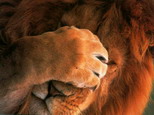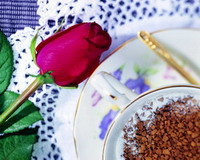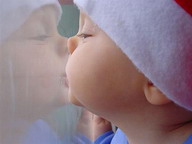Some interesting facts which "married" together coffee and literature:
By the late 1920s, early 1930s, Parisian cafés became the cultural centers for expatriate Americans living the bohemian life in France - including F. Scott and Zelda Fitzgerald, Ernest Hemingway, Gertrude Stein - far from the tensions of home. Black writers Langston Hughes, James Baldwin, and Richard Wright not only found a haven for their work, they found an affectionate homage to their final results.
Life in the café was as essential as breathing that writer Anais Nin once described it as, "The hours I have spent in cafes are the only ones I call living, apart from writing." She and fellow writer/lover Henry Miller ("Proust is going to my head. This afternoon I was reading him in the Café Mirroir ...") began their relationship in a café while Jean-Paul Sartre ("the café is a fullness of being") and Simone de Beauvoir made Café de Flore their thinking/talking/writing base.
Coffee became that singular detail, that exquisite glimpse that brought readers to the table as in this nearly offhanded description by Hemingway from Men Without Women: The Undefeated:
"Manuel had taken the wrapper off the lumps of sugar and dropped them into his coffee. He stirred it and drank it down, sweet, hot, and warming in his empty stomach."
But none of the writers, American or French, wrote more steadily and more acutely of Parisian life than an American girl fleeing the ordinariness of Indiana, Janet Flanner. Her "Letter from Paris" under the nom de plume, Genêt, for The New Yorker Magazine, ran from October 1925 to 1975, a few years before her death in 1978 at the age of 86. She arrived in Paris in 1923, moved into a small pension on the Left Bank, and told friends and strangers alike that "she intended to spend the rest of her life at her neighborhood cafe, Les Deux Magots." And she did, using the venerable café to talk with, comment about, and record the lives of the artists and writers and the events of those five decades, from the landing of Lindberg to the imminent danger of Hitler and the subsequent Nuremberg trials, to often being the first to introduce to her readers to the luminaries of her time, many of which are collected in Paris Was Yesterday, 1925-1939, Paris Journal: 1944-1955, and Janet Flanner's World: Uncollected Writings 1932 - 1975, all written against the background of her coveted table because, as Irwin Shaw also wrote, "You end at a café table because everything in Paris ends at a café table."
COFFEE IN LITERATURE
9 posts • Page 1 of 1
COFFEE IN LITERATURE
The powers of a man's mind are directly proportioned to the quantity of coffee he drinks - Sir James Mackintosh
-

Derek - member

- Posts: 78
- Joined: 19 Jul 2010, 04:09
Re: COFFEE IN LITERATURE
Oh, yeah, coffee has really gathered together so many people, cultures and nations that it has really became a worldwide brand and symbol!
I make serious coffee - so strong it wakes up the neighbors
-

helena - old member

- Posts: 103
- Joined: 28 Jan 2010, 04:01
Re: COFFEE IN LITERATURE
Yep.. It creates that special atmosphere.. Thanks for the story Derek!
Swirl the flavor. Savor the taste.
-

LavazzaMan - newbie

- Posts: 24
- Joined: 09 Jun 2010, 04:44
Re: COFFEE IN LITERATURE
Three is even a while book dedicated to poetry about coffee - Over the Black Coffee by Arthur Gray!
- Tentan
- member

- Posts: 50
- Joined: 16 Mar 2012, 01:54
Re: COFFEE IN LITERATURE
Found this book on the Internet, thought it would be interesting for someone  I liked the cover, I think that the pictures inside the book should be even better
I liked the cover, I think that the pictures inside the book should be even better 

 I liked the cover, I think that the pictures inside the book should be even better
I liked the cover, I think that the pictures inside the book should be even better 

Coffee is the best thing to douse the sunrise with
-

michael - old member

- Posts: 124
- Joined: 10 Dec 2009, 02:27
Re: COFFEE IN LITERATURE
michael wrote:Found this book on the Internet, thought it would be interesting for someoneI liked the cover, I think that the pictures inside the book should be even better

Already read that book - it doesn't have so many pictures as I've imagined at first
 But it should be interestng for everyone who enjoys coffee and is interested in it
But it should be interestng for everyone who enjoys coffee and is interested in it 
Coffee is the best thing to douse the sunrise with
-

michael - old member

- Posts: 124
- Joined: 10 Dec 2009, 02:27
Re: COFFEE IN LITERATURE
What a magic story 

-

PepetheCoffeeManiac - member

- Posts: 98
- Joined: 06 Mar 2012, 07:32
Re: COFFEE IN LITERATURE
Captivating title but the contents aren't as interesting. Just my two cents. 

Black as midnight on a moonless night
-

paul77 - old member

- Posts: 114
- Joined: 02 Feb 2010, 05:29
Re: COFFEE IN LITERATURE
By the late 1920s, early 1930s, Parisian cafés became the cultural centers for expatriate Americans living the bohemian life in France - including F. Scott and Zelda Fitzgerald, Ernest Hemingway, Gertrude Stein - far from the tensions of home. Black writers Langston Hughes, James Baldwin, and Richard Wright not only found a haven for their work, they found an affectionate homage to their final results.
Were, they were human beings, as well, so it doesn't surprise me that they liked coffee.

-

melissa - newbie

- Posts: 17
- Joined: 09 Nov 2010, 02:47
9 posts • Page 1 of 1
Who is online
Users browsing this forum: No registered users and 2 guests
